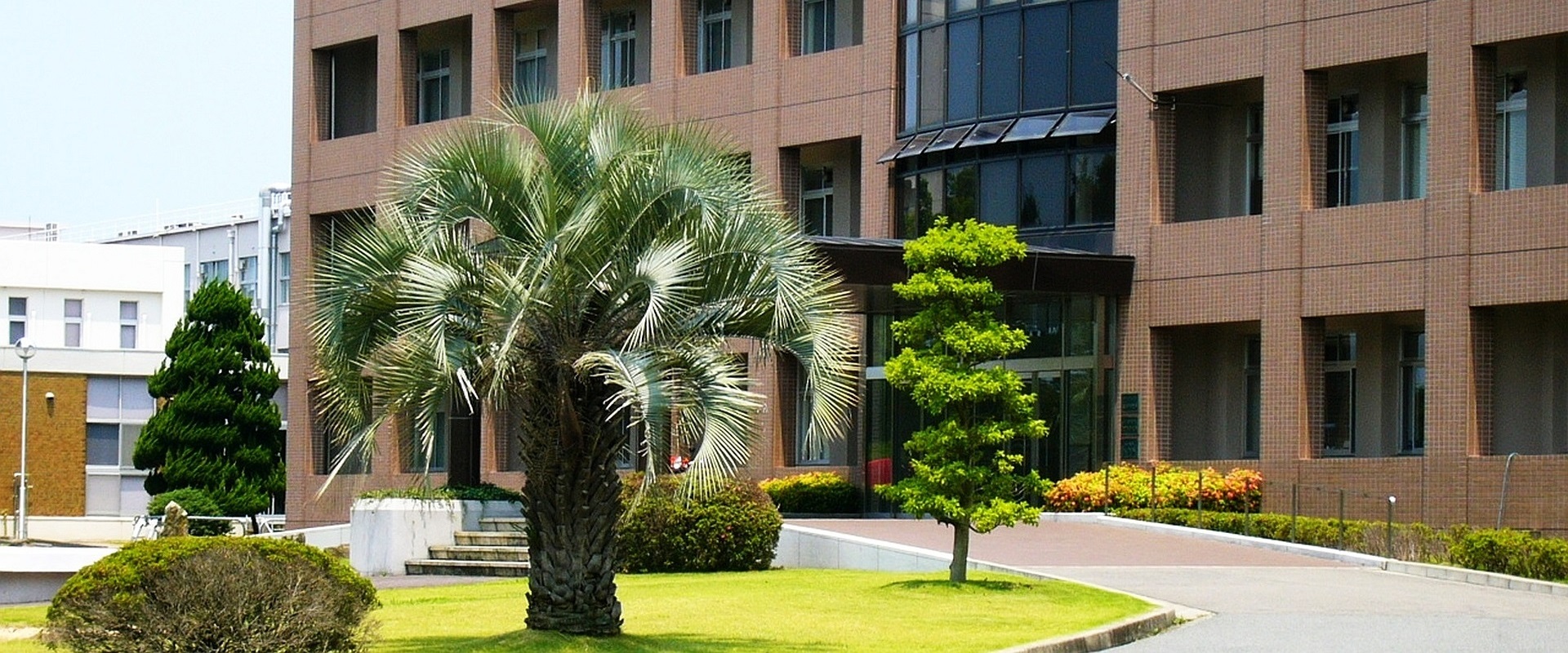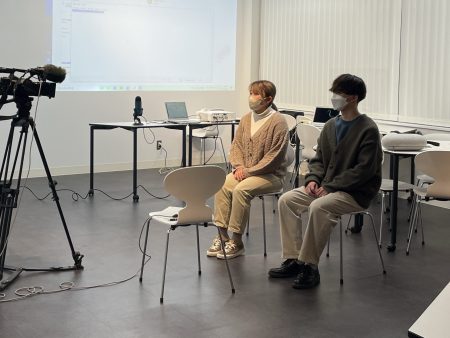
「VRオンライン留学」がテレビ放映されました
2022年03月28日 更新
「Virtual Reality(仮想現実)を活用したオンライン語学留学」が3月23日(水)「KRYニュースライブ」でテレビ放映されました。
昨今,教育分野などのさまざまな分野での「メタバース」の導入が注目を集めています。工学教育研究センターでは、コロナ禍で留学がかなわない中,「メタバース留学」を留学手段のひとつとして,また英語学習のモチベーション維持に繋がる取り組みとして,いち早く導入しました。教育へのメタバース導入の可能性を追求し,今後は、コロナ禍に留まらず、学びの多様性を尊重した新しいカタチの留学として,VRオンライン留学を提供していきます。興味のある学生は、工学教育研究センター海外派遣支援室へお問い合わせください。

インタビューの様子

David Read/ディビット リード
イギリス・シェフィールド大学附属語学学校(ELTC) / English Language Teaching Centre(ELTC) アカデミックディレクター
David Read インタビュー
Q.1 VRでの指導について率直にどう感じていますか
It’s really enjoyable to teach and learn in VR. Most students feel a little nervous speaking in a foreign language, but VR gives them the opportunity to play a role and become a different character and this means they feel much more confident to speak. Also, it’s much more authentic to have lessons in VR, because you can put students in the situation where they need to use the language, such as a cafe, restaurant or hotel.
VRで教えたり学んだりするのは、本当に楽しいです。ほとんどの学生は外国語で話すことに少し緊張を覚えますが、VRでは役(アバター)を選び、違う人物になることができるので、より自信を持って話すことができます。また、カフェやレストラン、ホテルなどさまざまなシチュエーションに学生を置くことができ、その場面に応じた会話をするため、VRでのレッスンはより本格的なものになります。
Q.2 VRで山口大学の学生たちに教えて手ごたえはありましたか
When I first started teaching in VR, I was a little nervous because it was very different from normal English teaching. It felt almost like I was playing a video game, using the mouse and keyboard to move my avatar around the different locations. However, the software we use from a company called Immerse is really well designed and I learnt it very quickly and now I feel I can organise a VR lesson as easily as a face to face or Zoom lesson.
VRを使った授業を始めた当初は、通常の英語教育とは大きく異なるため、少し緊張しました。マウスとキーボードを使って自分のアバターをさまざまな場所に移動させ、まるでビデオゲームをしているような感覚でした。しかし、Immerseという会社で使っているソフトウェアはとてもよくできていて、すぐに覚えられましたし、今では対面式やズーム式のレッスンと同じくらい簡単にVRレッスンを企画できると感じています。
Q.3 コロナ禍で留学がしづらい学生たちについて教師としてどのように感じていますか。
It was very sad that they didn’t have the opportunity to study abroad, as it’s a great chance to practise language in a real situation and also to meet students and people generally from different cultures. However, it did help many teachers and students become more proficient with technology (such as Zoom and Virtual Reality) and we discovered ways to continue teaching and learning through these tools.
留学は、実際の状況下で言語を練習し、また一般的に異なる文化圏の学生や人々と出会う絶好の機会であるため、留学の機会がなかったことは非常に残念でした。しかし、多くの教員や学生がテクノロジー(Zoomやバーチャルリアリティなど)を習熟するのに役立ち、これらのツールを使って教育や学習を継続する方法を発見することができました。
Q.4 今後の国際的な教育の在り方についてどう考えていますか。
I think we will see more and more use of technologies such as VR to help students experience places and cultures that it would be too expensive or difficult to visit face to face. And as the technology improves the realism of those experiences will improve as well. And in some cases, VR might be used to enhance the study abroad experience. So, for example, students might meet their teachers and explore the city and country they are going to visit in VR first before they travel to the place in person. This can help a lot with cultural adjustment.
今後、VRなどの技術を使って、直接行くには費用がかかりすぎる場所への移動や異文化体験がますます増えていくと思います。 そして、技術の向上とともに、その体験の臨場感も向上していくことでしょう。そして、場合によっては、留学体験をより充実させるためにVRが活用されるかもしれません。例えば、学生が実際にその場所に行く前に、まずVRで先生に会ったり、訪問先の街や国を探検したりするかもしれないわけです。これは、異文化理解や環境への適応に大いに役立ちます。

